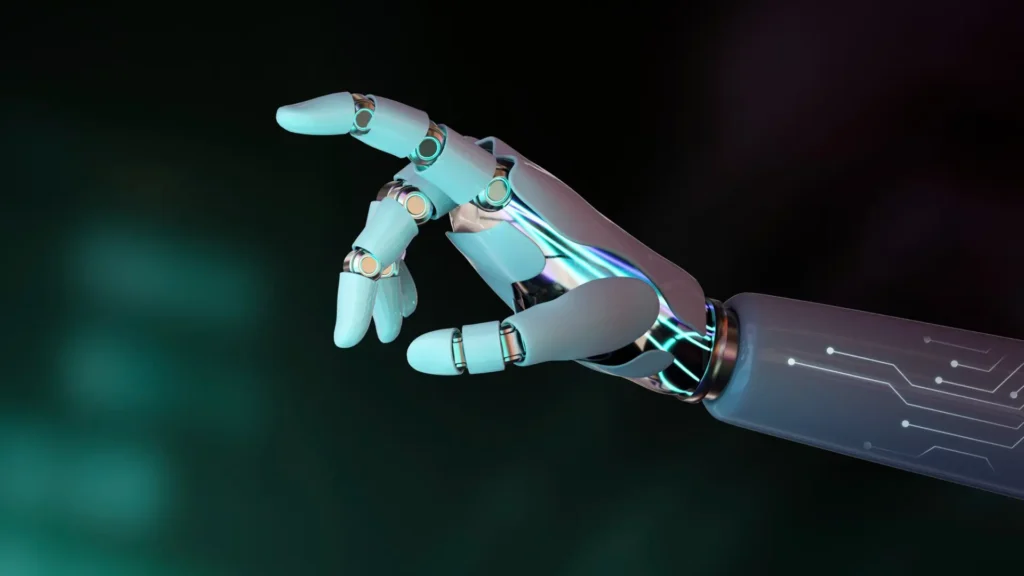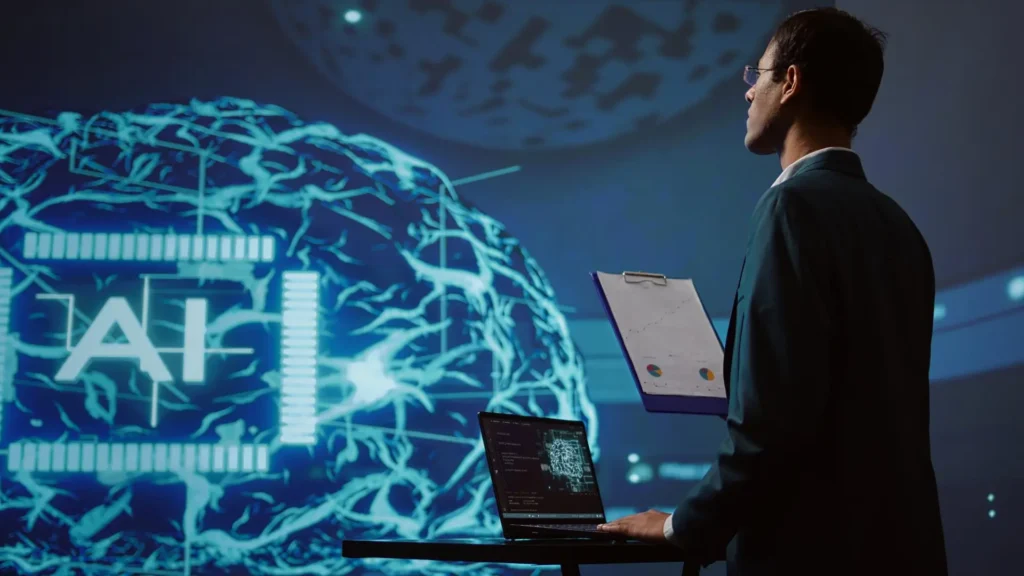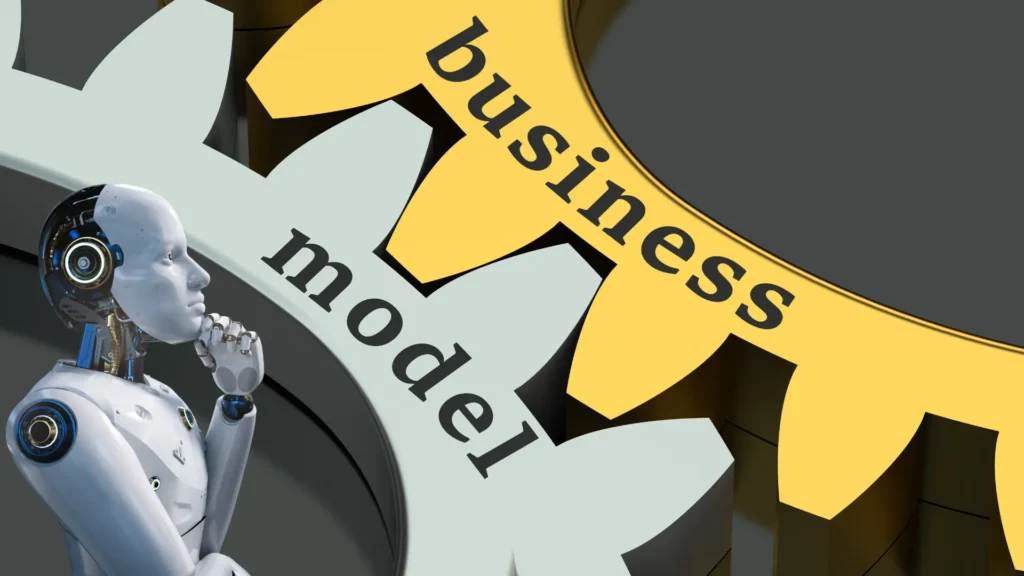
How Artificial Intelligence will Transform the Global Economy
Silicon once powered calculators; now neural chips crunch petabytes in seconds—artificial intelligence—pattern detection at machine pace—steps from research lab to boardroom priority. Spending projections from multiple research houses signal trillions in value creation over the next decade. AES Holdings tracks this curve closely, mapping sectors where early gains translate to lasting advantage.
AI Role in Productivity and Efficiency Gain
Manufacturing lines measure output per hour. AI vision systems spot micro-defects, adjust tool paths, and ramp throughput without extra labor. Logistics planners feed demand data to route-optimizing engines, cutting idle miles. In offices, generative models draft legal briefs, marketing copy, and code stubs, freeing expert time for creative leaps—result: higher margin, faster cycle, happier customers.

Healthcare, Finance, Manufacturing
Healthcare — Predictive diagnostics scan radiology images, flagging anomalies invisible to human eyes. Hospitals allocate beds based on forecast models, reducing wait times and raising survival rates.
Finance — Algorithmic portfolios rebalance in micro-bursts, locking gains while curbing exposure. Fraud engines read behavioral signals, stopping theft at first hint rather than after the fact.
Manufacturing — Digital twins mirror plant equipment, simulating stress and scheduling maintenance before a bolt fails. Raw-material waste shrinks, energy draw drops, and carbon targets glide within reach.

AI and the Future of Jobs: Automation vs Opportunity
Robots lift heavy boxes; chatbots answer routine queries. Yet history shows technology tends to create fresh roles while retiring tasks. Data ethicists, prompt engineers, and AI safety auditors already command substantial salaries. Education systems pivot toward problem-solving, design, and interpersonal strength—skills that machines copy poorly. AES Holdings invests in reskilling programs across its portfolio, viewing talent as a renewable asset rather than a line item.
AI-Driven Innovation and New Business Models
Streaming unseated broadcast; ride-hailing challenged taxi unions. AI pushes the next wave. Pay-per-use insurance adjusts premiums based on driving habits measured in real time. Personalized nutrition services craft meal plans from genomic scans. Virtual fashion houses design outfits visible only in augmented reality feeds, yet customers happily pay for uniqueness. Early movers seize data flywheels, pulling further ahead as algorithms refine offers with every click.
Economic Growth Through Smart Decision-Making
GDP growth springs from capital, labor, and total factor productivity—the magic slice often credited to innovation. AI supercharges that slice—central banks test models that weigh millions of indicators, steering policy with surgical precision. Farmers use satellite data plus predictive weather to plant at the perfect moment, lifting yields. Municipal planners simulate traffic to time signal shifts, easing congestion and raising commerce throughput.

Changing Supply Chains
Supply routes once followed static charts. AI senses port delays, political tremors, and raw-material price swings, then shifts orders on the fly. Retailers stock shelves based on hyper-local demand forecasts—umbrella spikes before clouds gather. Such agility trims holding costs, cuts spoilage, and lifts customer satisfaction. Global networks morph into living systems, quick to reroute yet steady in service.
Risks and Ethical Challenges of AI Use
Power amplifies risk. Bias lurks inside historical data; unchecked, it flows into credit scores or parole rulings. Black-box models puzzle auditors, prompting calls for transparency. Autonomous weapons raise geopolitical tension. AES Holdings answers with governance councils, fairness metrics, and kill-switch protocols. Regulation races to catch up, yet proactive firms already embed ethics checkpoints in product lifecycles.
How Countries Compete in the AI Race
China pours capital into semiconductor fabs and city-scale pilot zones. The United States leans on venture ecosystems and research universities. Europe focuses on privacy-centric frameworks, betting on trust as a competitive asset. Gulf states fund compute clusters powered by solar farms, aiming for sovereign capability. Talent visas, cloud subsidies, and defense contracts all feed momentum. Victory feels less like a single finish line, more like a persistent lead across multiple arenas.

Ready for an AI-Powered Future
Enterprises face a clear choice: ride the wave or tread water. Boards allocate budgets toward data infrastructure, secure cloud access, and continuous learning programs. Policymakers craft upskilling grants, antitrust rules, and digital-twin standards. Individuals sharpen adaptability, creativity, and emotional nuance—traits complementing silicon logic.
AES Holdings positions itself at the crossroads of capital and code, channeling resources toward ventures that marry machine intelligence with human ingenuity. The payoff? Inclusive prosperity, resilient industries, and a future where intelligent algorithms serve society rather than overshadow it.


